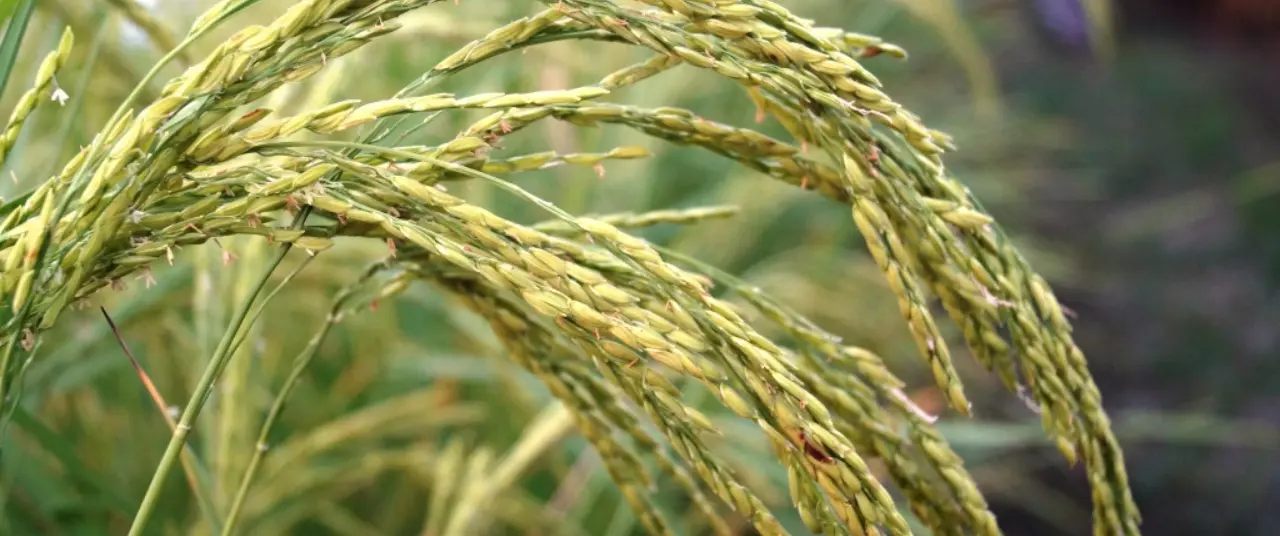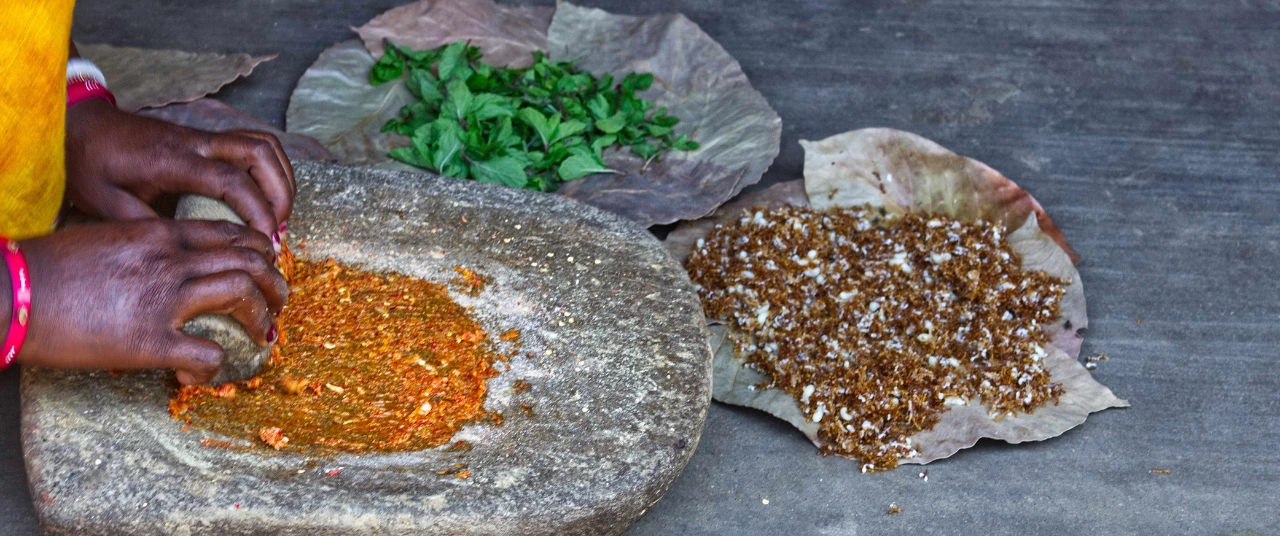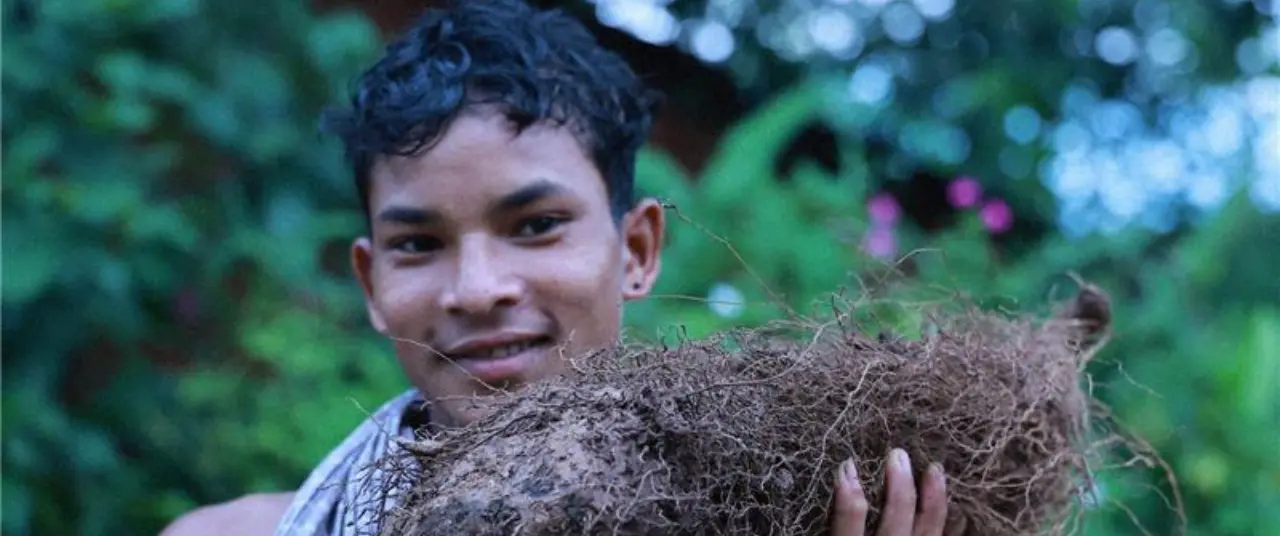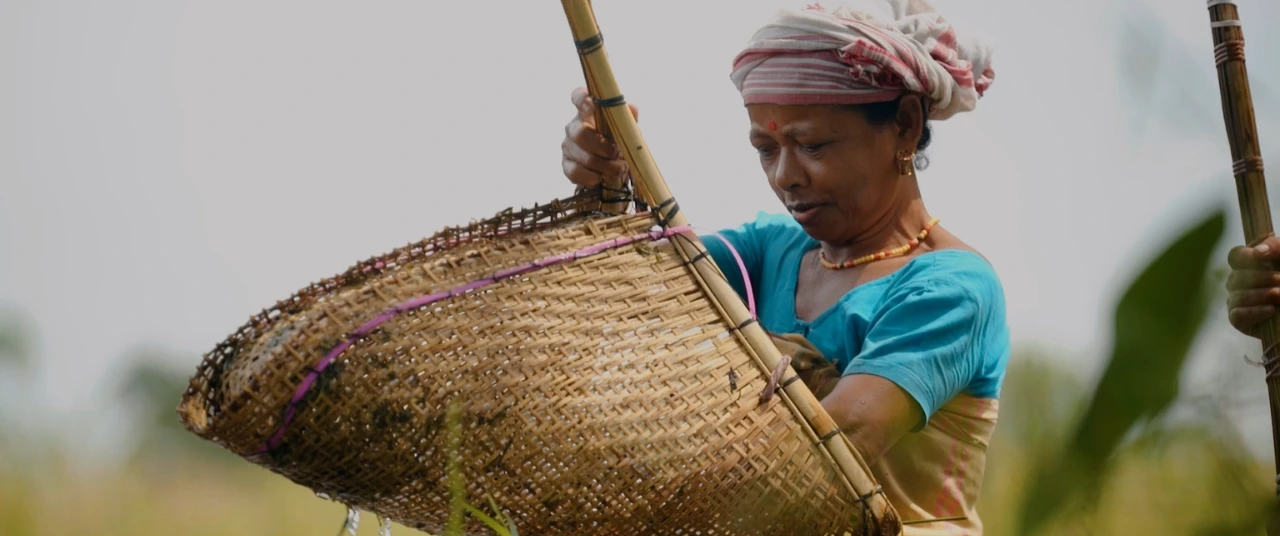Their secret sauce? Procuring ingredients with care and cooking them without rush






Sun-kissed vegetables, slow-roasted meat, aromatic steamed rice—there’s something invigorating and comforting about every bite of food served in the ‘Mei Ramew’ (Mother Earth, in Khasi) cafés of Khweng. Every ingredient carries a flavour that is distinctly unique to the corner of Meghalaya where the cafés are located.
Standing side by side, these two establishments are more than just places to eat traditional Khasi food. They are an initiative aimed towards giving the region's rich agrobiodiversity a spot on local plates—encouraging the Khweng community to keep their ancestral Khasi cooking traditions alive, and also empowering them with a livelihood.
“We never cook anything in a rush,” says Kong Plantina.
Many chefs and cooks hold their secret ingredients close to their hearts. Some recipes are passed down through the family, while others take these secrets to the grave. However, Kong Plantina Mujai and Kong Dial Muktieh, who run the two cafe outlets, are generous in sharing details about what makes their cooking magical.
“We never cook anything in a rush,” says Kong Plantina.
The secret ingredient or recipe behind the Mei Ramew cafés’ nourishing food is simply–time. Time taken to organically grow and procure fresh produce; and to cook the food with care and a sense of deliberation, that renders it its wonderful flavour.
The philosophy of the Mei Ramew Cafes is a reflection of the larger Khweng community. For the people of Khweng, food is their identity and they regard it as something that cannot be rushed—whether you’re growing it or cooking it.
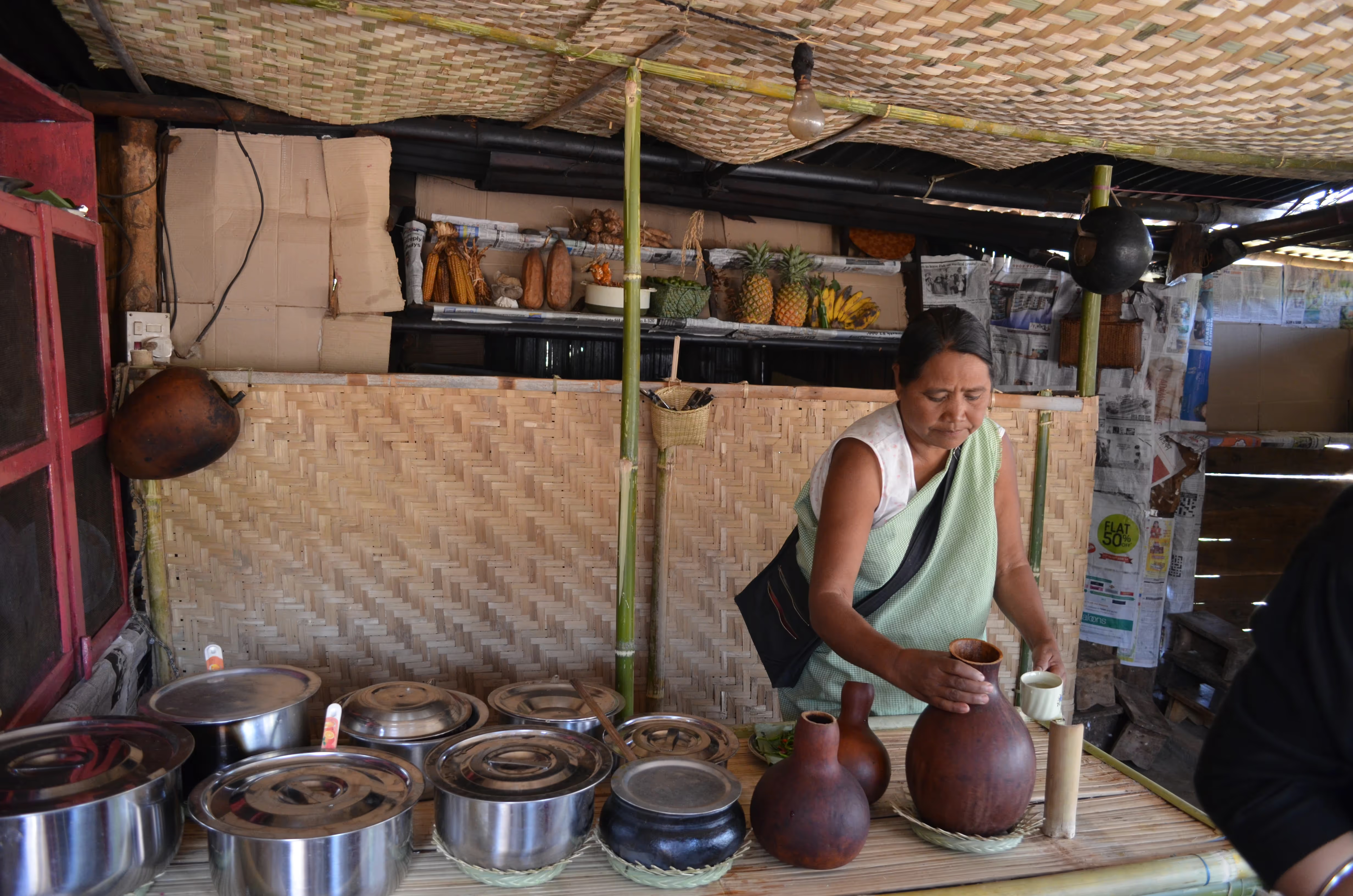
Also read: Let there be light, where the grid cannot go
The birthplace of a movement
Khweng wasn’t always like this. In the early 2010s, it was one of many villages in Meghalaya that had been affected by the craze for monocropping and commercial farming, which affected both soil health and the community whose livelihoods depended on the land’s produce. Conversations with the villagers reveal that they used to use chemical fertilisers in their fields earlier. In 2012, the North East Society for Agroecology Support (NESFAS), a Meghalaya-based NGO, started collaborating with Khweng for a vital mission: to safeguard indigenous food systems and reintegrate local ingredients and the agrobiodiversity of the village into their meals. They taught Khweng’s farmers composting and organic cultivation methods focussed on local plant species rather than mainstream, commercially-viable crops.
At the heart of this initiative was Kong Plantina Mujai, a woman renowned for her expansive knowledge of local ingredients and traditional methods of cooking—skills she had honed since 1993. In 2013, NESFAS established the first Mei Ramew café in Khweng for Kong Plantina to kickstart this initiative which would blend ancient wisdom and financial prospects for the community.
“The essence of the Mei Ramew café is to have clean, organic food. Food that we get from nature,” she says, chopping a bunch of water celery while keeping a watchful eye on the rice she’s steaming in the klong [bottle gourd shell].
“We wanted to celebrate the taste and diversity of local food. Opening a café seemed to be the most logical course of action. This would also generate more livelihoods for the people of Khweng,” shares Janakpreet Singh, Senior Associate, Livelihood Initiatives at NESFAS, about the origins of the Mei Ramew cafés.
Two years later, Kong Plantina’s Mei Ramew café became a sensation during the Indigenous Terra Madre event hosted by NESFAS in 2015. Indigenous communities from over 52 countries participated in this event. The success of her café further incentivised NESFAS and the community to scale the Mei Ramew initiative. In 2019, NESFAS helped transform Kong Dial Muktieh’s food stall, which has hitherto served local snacks and traditional Khasi food, into Khweng’s second Mei Ramew café.
The champions behind the apron
The two women behind the Mei Ramew cafés are their very heartbeat, shaping every facet of the way they are run. Each brings a distinct perspective and personal style to their approach to cooking.
For Kong Plantina, who regards her grandmother as her inspiration for cooking, food is all about putting love and time into meal prep. Her special bond with her grandmother shines in the many recipes and kinds of cuisine she has inherited from her. Having cooked for more than three decades now, she has improved on many of the familial recipes while also coming up with her own dishes. One meal she is famous for is a local fish recipe cooked with black pepper and sawtooth coriander.
“The essence of the Mei Ramew café is to have clean, organic food. Food that we get from nature,” she says, chopping a bunch of water celery while keeping a watchful eye on the rice she’s steaming in the klong [bottle gourd shell].
{{marquee}}
It is the weekend when this writer has visited her–and most of the tables in her café are occupied. At its full capacity, the café can serve about 20 people. One lucky group enters and occupies the last table. They place an order for her special grilled fish and Jadoh [rice and pork] and are promptly attended to by her daughter.
Unlike the early days of the café when she ran everything herself, Kong Plantina’s daughter is now learning the ropes of running the café and helping the business grow. In truly indigenous fashion, the art of traditional cooking that she polished over years of experience and by sitting at her grandmother’s side are now being seamlessly passed on to her daughter.
On the other side of the road, Kong Dial Muktieh is busy grilling a batch of pork on iron skewers. The skewers and some steel pots are some of the only modern cooking instruments in her kitchen. Kong Dial Muktieh emphasises on traditional methods of cooking. Various traditional ingredients and methods of preparation that have disappeared from Khweng’s meals over time, make their return to her kitchen momentous.
A mapping on wild edible plants conducted in 2021 in Ri Bhoi district revealed that Khweng had the highest agrobiodiversity in Meghalaya with over 319 micro-nutrient rich and climate resilient crop species.
Chopped fish and wild edibles boil inside bamboo poles on the fire, while an assortment of cherry tomatoes, bitter brinjal and banana flowers are covered with broad wild leaves and buried in hot ash. On the other side of the fireplace, rice cooked in bamboo poles is ready to be served to hungry customers with side dishes of sweet and tangy rosella, bamboo shoot with fish amongst others. There are more than 20 side dishes in the special Khasi thali. Local wines made from rice and fruits are also served in bamboo cups.
Inside her kitchen, you’re transported to a different time. These aren’t fancy urban restaurants trying to recreate traditional recipes in commercial kitchens: these are warm, comforting hearths where the soul of traditional cooking is being kept alive.
Also read: How lemon groves turned Manipur’s Kachai into a citrus empire
Food sovereignty in action
Today, Khweng is a self-sufficient community–where indigenous food systems provide sustenance to the village all year-round. This can be attributed to the organic methods of farming as well as the identification, popularisation and foraging of wild edibles and plants such as fishmint, Indian pennywort, and water celery, which all boast a high nutritional content (potassium, iron, magnesium, zinc and Vitamins A, B and C among others). A mapping on wild edible plants conducted in 2021 in Ri Bhoi district revealed that Khweng had the highest agrobiodiversity in Meghalaya with over 319 micro-nutrient rich and climate resilient crop species.
The Mei Ramew cafés stand as a collaborative effort: several farmers in Khweng sell their surplus produce to these establishments, sustaining themselves as well as the cafés. “I supply different vegetables, fish and chicken from my farm and this has helped me earn an honest living for my family,” shares Pistar Nongktieh, one of the suppliers at Kong Dial’s café.
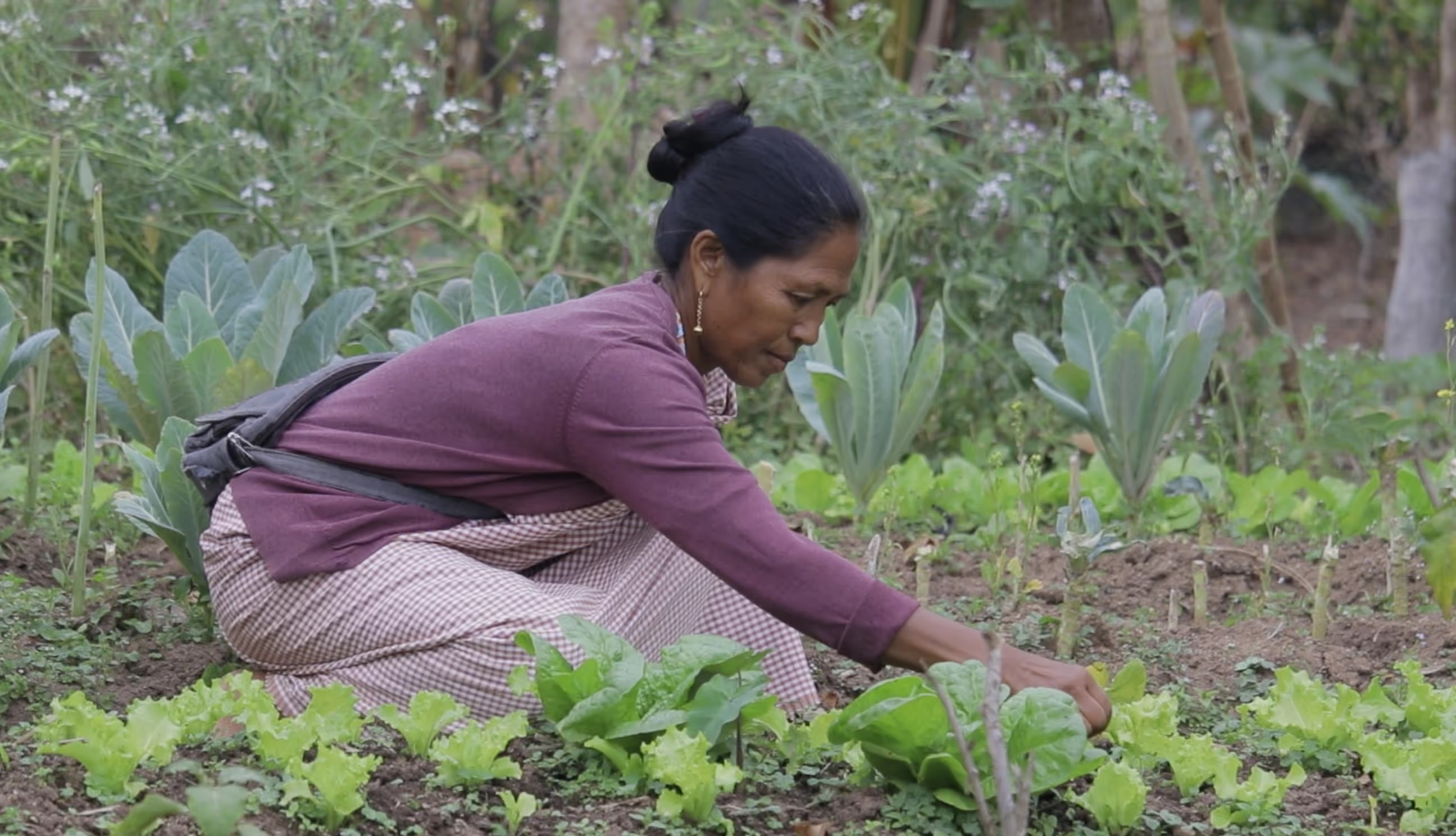
The use of many wild edible plants in the two cafés has also revitalised a curiosity for traditional Khasi cuisine. It has encouraged Khweng’s residents to incorporate these vegetables into their daily diets, enhancing their dietary intake and health. “These two cafés have brought many benefits to the villagers,” shares Rikuna Nongsiej, a farmer from Khweng who supplies her produce to both cafés. “We have put Khweng on the map, thanks to these two cafés,” she adds, smiling.
On the drive back from Khweng, a remark made by NESFAS’ Singh stays with this writer. “Promoting local and indigenous food was a completely new idea when we started this initiative. Khweng’s people truly took on this challenge with courage and curiosity. Today, the fact that these cafés have a loyal clientele and are successfully generating livelihoods and attracting visitors, is amazing. All credit goes to them.”
Mei Ramew cafés also reflect the ingenuity and resilience of indigenous communities in the face of adversity. At the heart of it all are the community’s women, who are often considered the custodians of biodiversity, seeds, and cultures. In the face of mounting food crises around the world, Khweng’s Mei Ramew cafés highlight the oft overlooked strength of indigenous food systems, which can offer scalable, resilient solutions rooted in tradition and sustainability.
Also read: How the 'makrei' sticky rice fosters love, labour in Manipur
Images by SC Horzak Zimik and NESFAS.
{{quiz}}
Explore other topics
References

When was the first Mei Ramew café established?


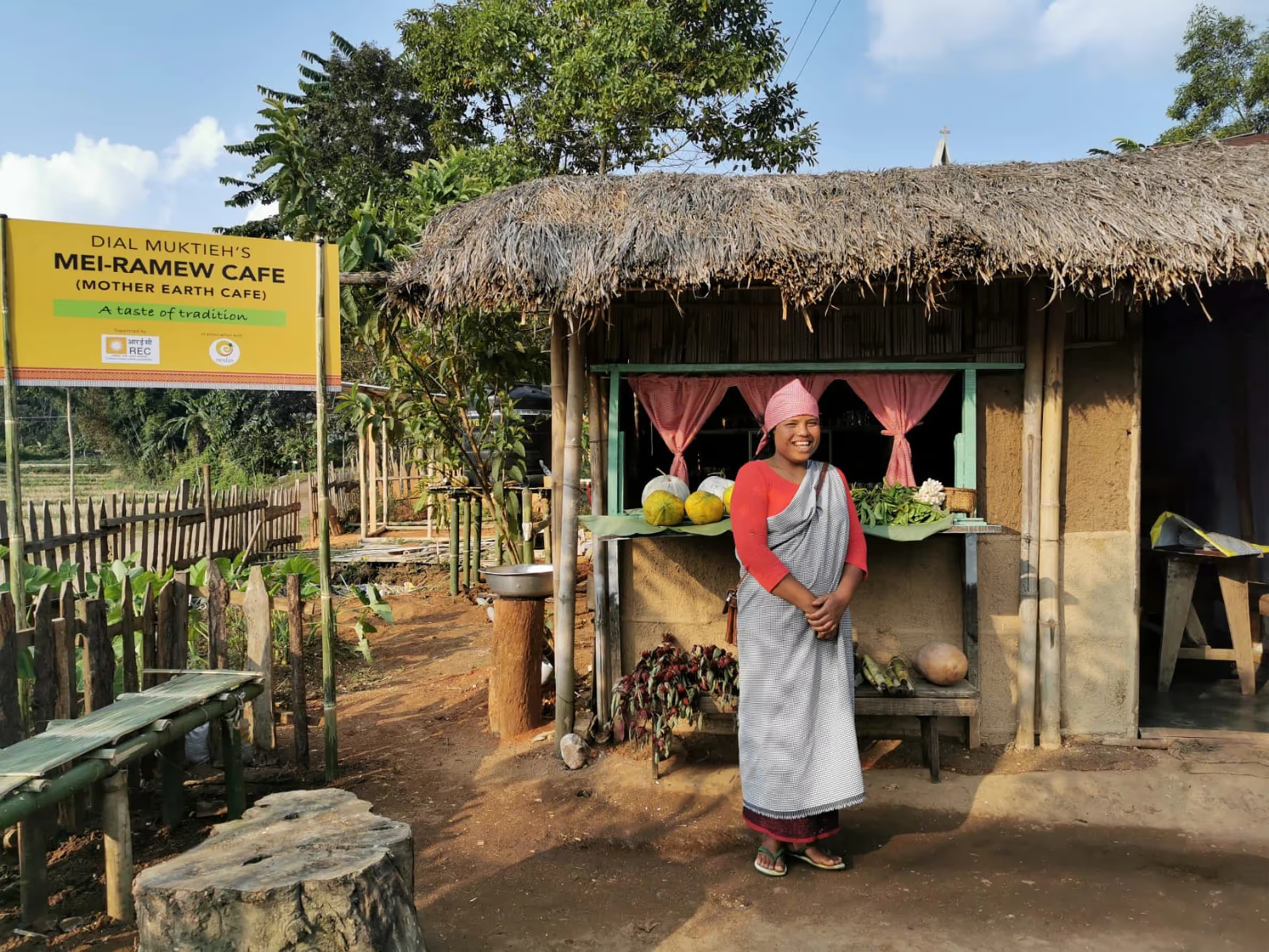
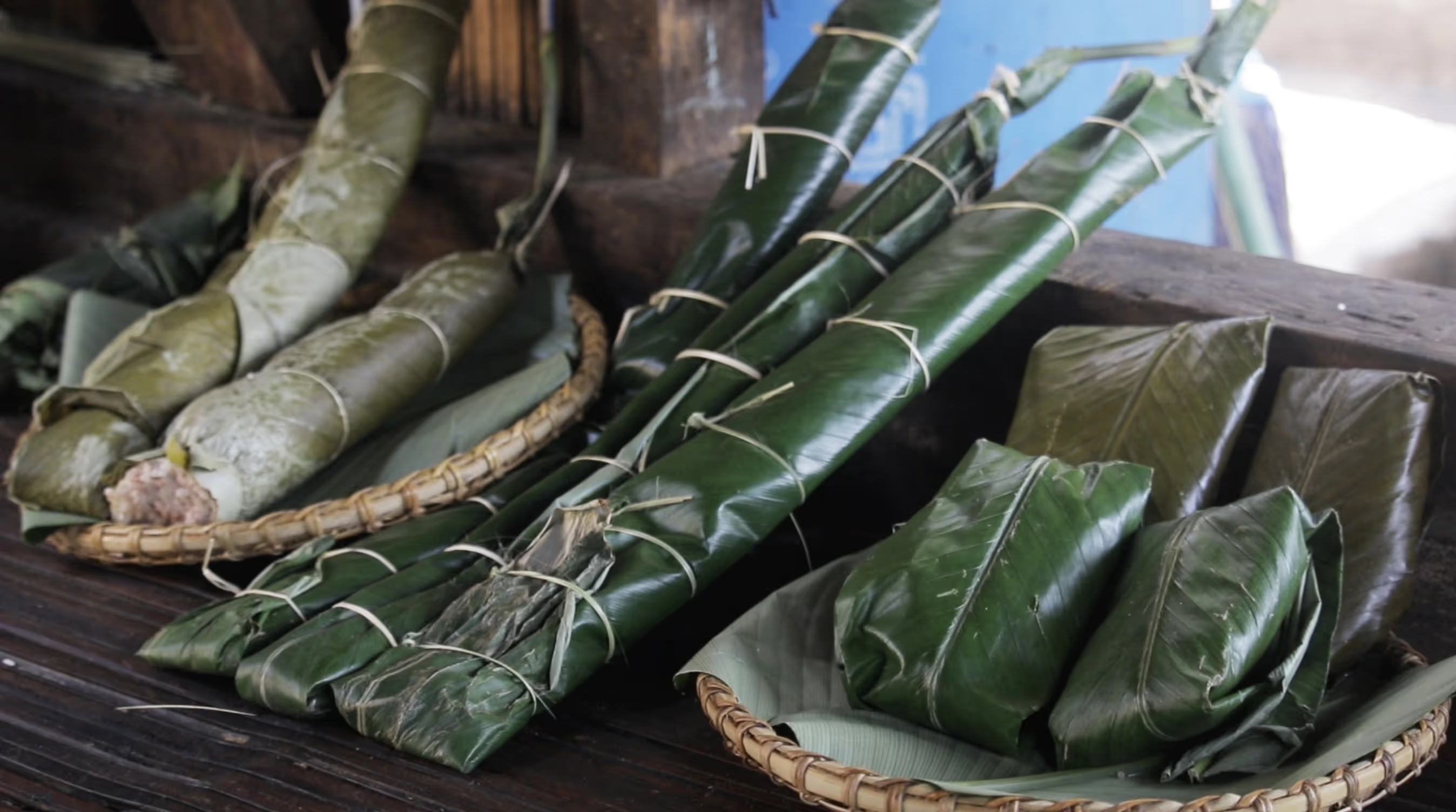
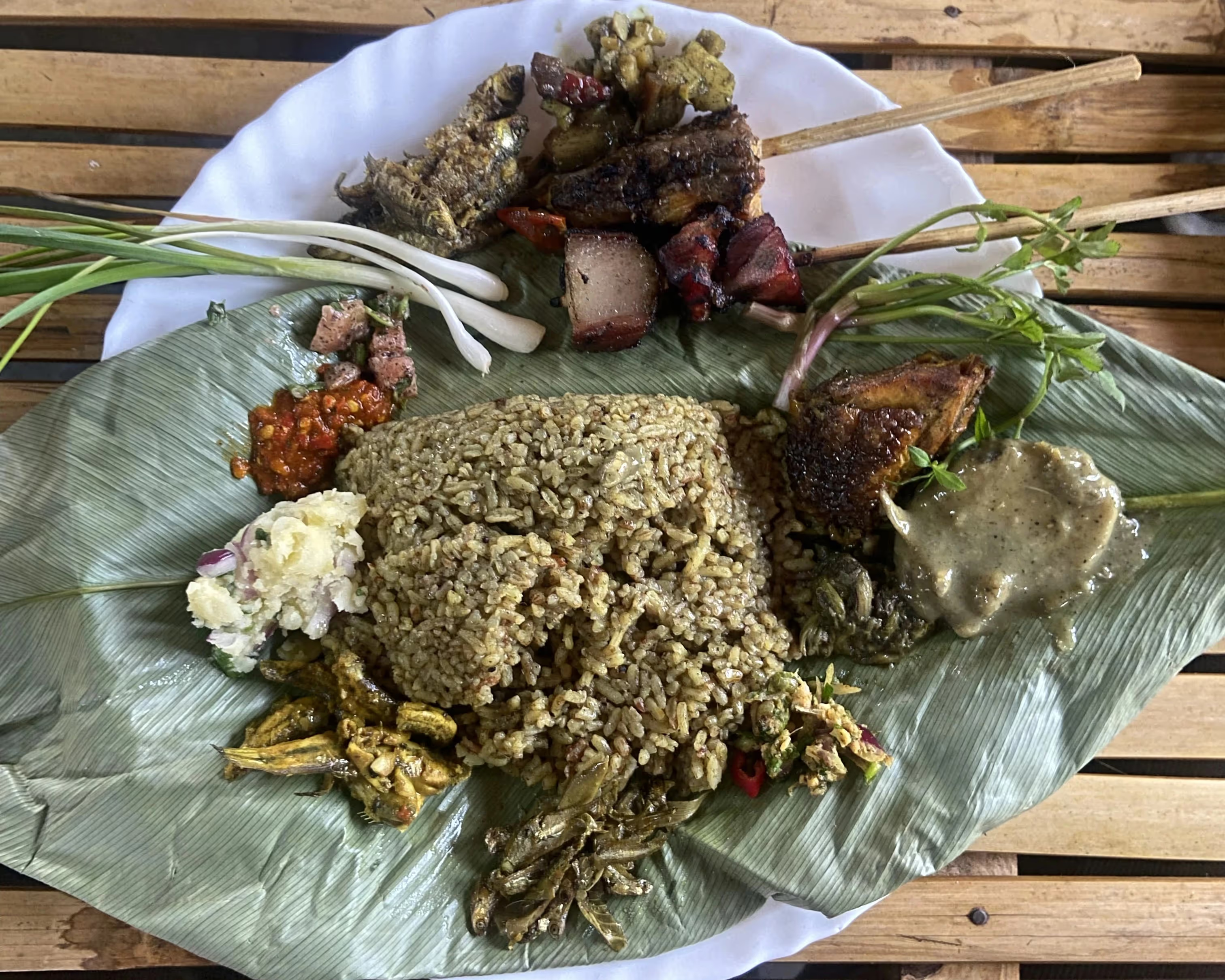















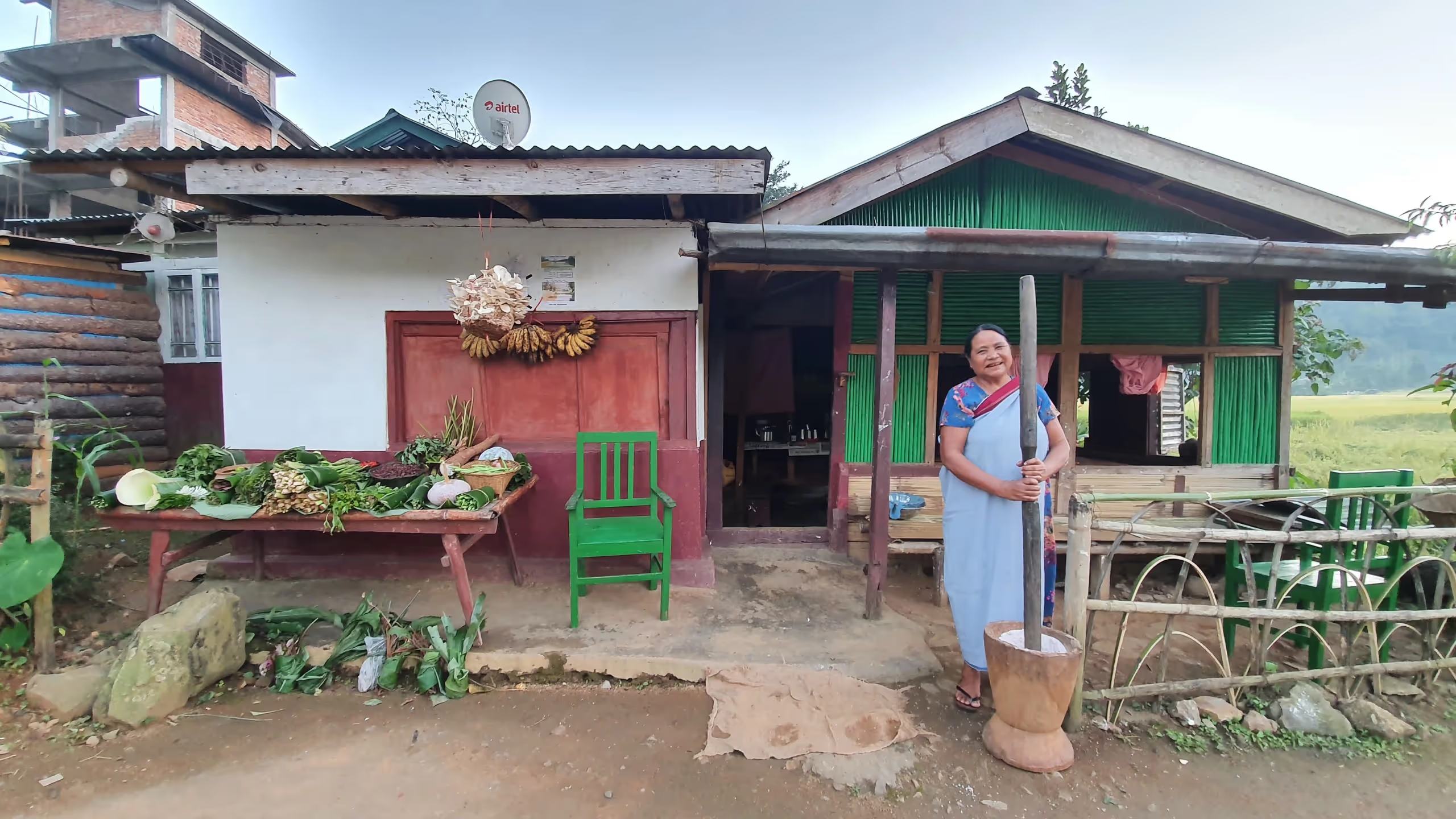


.avif)


